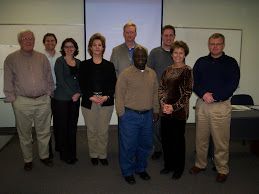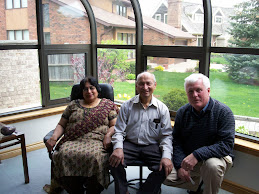Shaun, if you are in New England, you ought to be in a "target rich" case study area. New England has a reputation for colleges and universities. Here are some ways to identify likely nearby case studies. Google "social media" for your area. In Madison, Wisconsin, which is a 20-minute drive from here, there is a "Social Media Network." The practitioners in the social media field are active in it; these are the kinds of networks that can help you to find the case studies. Moreover, they are likely excellent professional networks for you to cultivate as you move ahead with a leadership position in the field because of your research. Also, approach organizations like ASTD, the American Society for Training and Development, and the association of community colleges (I do not have the exact name on tap right now). You may also want to contact librarians in higher education, since they face similar technological pressures to survive and thrive.
In my Ph.D. dissertation I used the concept (from the UK) of "social-technical systems." It observes that every technology has a sociology, and vice versa. Karl Marx pointed this out when he observed how the "means of production" created social classes. Of course, "social-technical systems" avoids the label of Communist. However, Marx was a good sociologist, even if his political prescriptions are flawed. I would explore how you could apply "social-technical systems" to your work.
You are saying that the insertion of a certain technology has the potential to impact sociology. It is no more complicated than this, but it provides a time-tested, field-tested way to structure your field research. Again, the word systems suggests macro-research (organizational) instead of micro-research (classroom). However, classrooms are a sociology, and you are proposing to change the technology of it in order to alter the sociology, social dynamics of it. Again, the macro or micro focus is your choice. You must do the work; you need to have passion for whatever you are going to do here due to resources like time, energy, funding, and health. Please review the attachment. It is a classic social-technical systems analysis without referencing it as the analytical framework. See pages 35-39. I like it because it says technology is blowing up the old factory model of education (Karl Marx here)! It allows us to replace it with a more human, cost-effective, retention-rich model.
Notice how the article explores the probable impact of the emerging social media technologies on the social structures of teaching, as well as learning, and their locations. Notice too how the technology takes 1/3 of the time for simple information download; the teacher takes /13 of the time for sociological interactions. And another 1/3 of the time is field learning, which aligns with the trend toward internships, apprenticeships, and away from degrees. Notice also how the socilogy of who is an educator changes too. Ivan Illich argued for this in his famous Deschooling Society. You may find Illich of use. An adult educator friend of mine, now deceased, was a personal friend if Illich! I am in fact an Illich fan, and this is why I love the de-schooling impact of the emerging social media today.









No comments:
Post a Comment